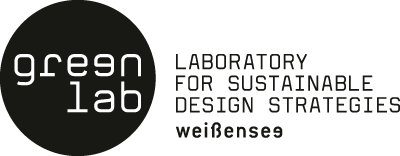

Wie können in Vergessenheit geratene Ressourcen und ihr Geschmack und Duft wiederbelebt werden?
Beim Spazierengehen werden Dinge oft intensiver und bewusster wahrgenommen als im gewohnten Alltag. Zum Beispiel das versteckte Nahrungsangebot unserer alltäglichen Umgebung. Durch einen Perspektivwechsel kann sich der städtische plötzlich in einen agrarischen Raum verwandeln.
Quercus Congressus (“Eichel-Kongress”) richtet den Fokus auf die Eicheln, welche jedes Jahr zuhauf in unseren Parks zu Boden fallen. Ihr in früheren Zeiten bereits häufig genutztes Nahrungspotenzial wird im Rahmen einer offenen Architektur wieder ins Bewusstsein geholt: Ein mobiler, klappbarer Pavillon mit kreisrundem Boden und Leichtbaudach, zusammengehalten durch eine Kombination aus Röstofen und Abzugsrohr.
Das für den Weimarer Ilmpark konzipierte Projekt verbindet Commons und Konsum, vermittelt Wissen und bindet seine BesucherInnen in den Prozess mit ein. Gleichzeitig machen die historische Parkumgebung und die sinnliche Wahrnehmung der Materialien und Gerüche des Pavillons den Genuss des Eichelkaffees zu einem ganzheitlichen Erlebnis.
Aus dem parallel dazu gewonnenen Mehlersatz wird ein saisonales Brot hergestellt. Über die Nutzung von Eicheln in verschiedenen Kulturen und Zeiten informiert eine Audio-Installation an mehreren Standorten im Park.
How can we bring long forgotten ingredients back to life and revive their tastes and scents?
When taking a walk, we often perceive things more intensively and consciously than in everyday life. For example the food on offer in our everyday environment. Only through a change of perspective can the urban space suddenly transform into an agricultural space.
Quercus Congressus („Acorn Congress“) directs our attention to the acorns which fall to the ground in great numbers every year in our public parks. Their nutritional potential, widely used in earlier times, is brought back into the public consciousness within the framework of an open architectural structure. It consists of a mobile, folding pavilion with a circular floor and lightweight roof, held together by a combination of a roasting oven and an extractor pipe.
This project, conceived for the Ilmpark in Weimar, combines commons and consumption, conveys knowledge and involves its visitors in the process. At the same time, the historical park environment and the sensual perception of the materials and smells of the pavilion turn the enjoyment of acorn coffee into an immersive experience.
A seasonal bread is baked from the flour substitute that results as a by-product of the acorn milling process. An audio installation at various locations in the park informs visitors about the use of acorns in various cultures and eras.